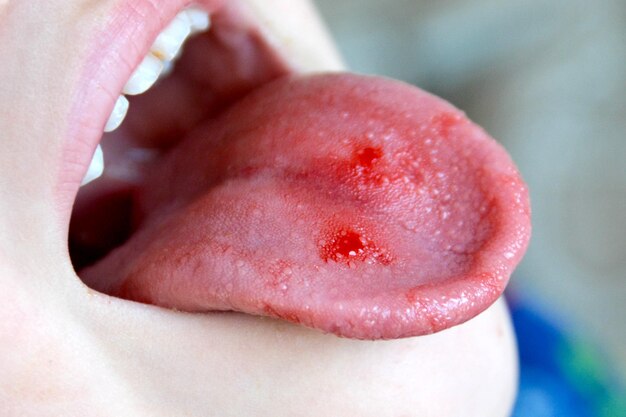Oral thrush, also known as oropharyngeal candidiasis, is a fungal infection caused by an overgrowth of Candida yeast, particularly Candida albicans. This condition affects the mucous membranes of the mouth, leading to discomfort and complications if left untreated. Understanding the symptoms, causes, and treatments of oral thrush is essential for effective management and prevention.
Symptoms of Oral Thrush
The symptoms of oral thrush can vary in severity and may include:
- White Patches: The most recognizable symptom is the presence of creamy white lesions on the tongue, inner cheeks, gums, tonsils, or the back of the throat. These patches can resemble cottage cheese and may be painful or bleed if scraped.
- Redness and Inflammation: The affected areas may appear red and inflamed, leading to discomfort or soreness.
- Dry Mouth: Individuals may experience a persistent dry mouth or a cotton-like sensation.
- Difficulty Swallowing: In some cases, oral thrush can cause pain when swallowing or lead to a sensation of food getting stuck in the throat.
- Loss of Taste: Some people may notice a change or loss of taste due to the infection.
- Cracking at the Corners of the Mouth: Angular cheilitis, or cracking at the corners of the mouth, can occur as a result of oral thrush.
Causes of Oral Thrush
Several factors can contribute to the development of oral thrush, including:
- Weakened Immune System: Individuals with compromised immune systems, such as those with HIV/AIDS, cancer, or those undergoing chemotherapy, are more susceptible to oral thrush.
- Antibiotic Use: Antibiotics can disrupt the natural balance of bacteria in the mouth, allowing Candida to thrive. This is particularly common after a course of broad-spectrum antibiotics.
- Diabetes: Uncontrolled diabetes can lead to elevated sugar levels in the saliva, creating an environment conducive to fungal growth.
- Dry Mouth: Conditions that cause dry mouth, such as Sjögren’s syndrome or prolonged use of certain medications (e.g., antihistamines), can increase the risk of oral thrush.
- Dentures: Wearing dentures, especially if they do not fit well or are not properly cleaned, can create an environment that fosters Candida overgrowth.
- Hormonal Changes: Fluctuations in hormones, such as during pregnancy or menstrual cycles, can increase the risk of developing oral thrush.
Treatments for Oral Thrush
Treatment for oral thrush typically involves antifungal medications and supportive measures:
- Antifungal Medications: Common antifungal treatments include:
- Nystatin: An oral suspension that can be swished in the mouth and swallowed.
- Clotrimazole: An antifungal lozenge that dissolves in the mouth.
- Fluconazole: An oral tablet or liquid for more severe cases or for individuals with weakened immune systems.
- Good Oral Hygiene: Maintaining good oral hygiene is crucial. Regular brushing and flossing, along with rinsing the mouth with water after meals, can help reduce the risk of Candida overgrowth.
- Dietary Changes: Reducing sugar and refined carbohydrate intake may help manage and prevent oral thrush, as Candida thrives on sugar.
- Managing Underlying Conditions: For individuals with diabetes or other underlying health issues, controlling these conditions can help prevent oral thrush from recurring.
- Avoiding Irritants: Avoiding tobacco and alcohol can help improve oral health and reduce the risk of thrush.
Oral thrush is a common condition that can cause discomfort and complications if not addressed promptly. Recognizing the symptoms, understanding the causes, and seeking appropriate treatment are crucial for managing this fungal infection. If you suspect you have oral thrush, it is essential to consult a healthcare professional for a proper diagnosis and tailored treatment plan. With timely intervention and good oral hygiene practices, individuals can effectively manage and prevent oral thrush.










